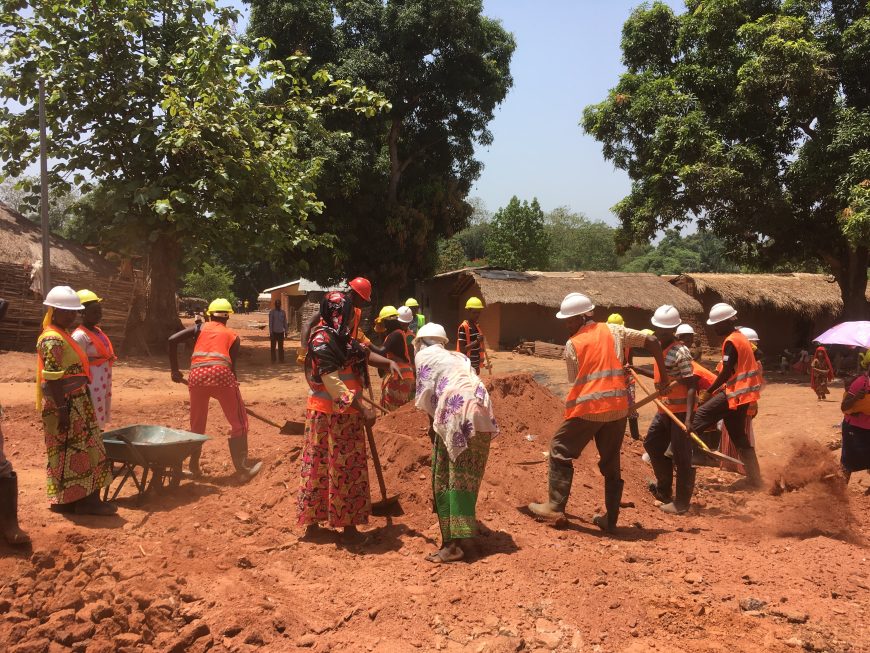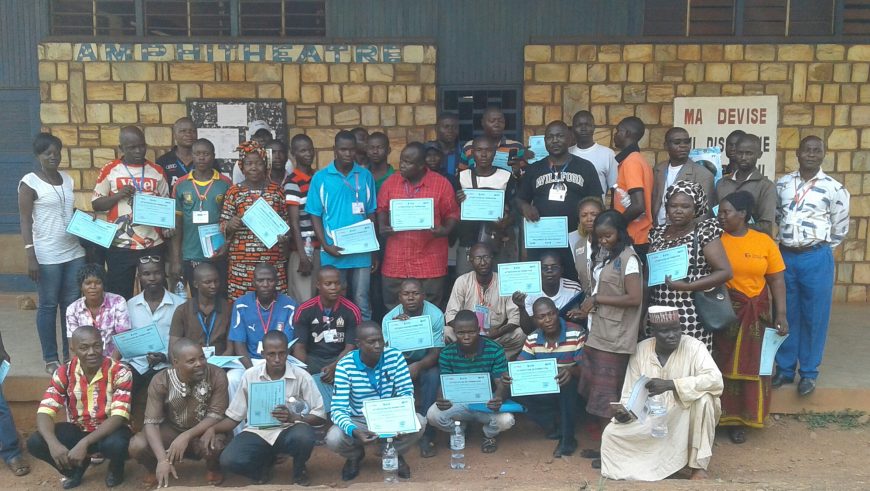The crisis that has shaken the Central African Republic since the end of 2013 has forced millions of people to flee violence. Despite ongoing tensions, a large number of displaced persons are voluntarily returning to the city of Bambari.
With the help of the European Union Bêkou Trust Fund, ACTED supports and helps to perpetuate the dynamics of voluntary returns of populations through adapted and strengthened social, economic and protection mechanisms. These displaced persons returning to the town of Bambari, in the Ouaka prefecture, are supported to set up income-generating activities.
Members of host, displaced and returning communities have access to income-generating activities in the short and medium term. The populations also participate in the rehabilitation of social and community infrastructures. These activities enable them to meet the priority needs of their households and strengthen intra-community solidarity links to promote living together and social cohesion in the Bambari Sub-Prefecture.
Support and sustain the dynamics of voluntary returns of displaced populations
Since the events of March 2013, the deterioration of social and inter-community links has weakened the economic and social fabric of the Central African Republic, which in turn has negatively affected livelihoods of inhabitants. In addition, there is massive decapitalization, volatile security conditions and an economic context marked by unemployment. Lack of jobs and and loss of confidence are profoundly affecting the country’s economic recovery. This is why the project “I KOUE E BOUMBI TI YA BAMBARI NA NDOUZOU / All together for the recovery of Bambari” aims to promote the return of a common living space between the inhabitants of Bambari through mechanisms to mitigate conflicts and new economic opportunities.
The road: the only way to connect neighbourhoods and communities

ACTED’s intervention aimed at the rehabilitation of 5 lanes and a health centre using the High Intensity Labor Work (THIMO) method. A total of 672 people from different neighbourhoods and communities in the city participated in these rehabilitations.
Before ACTED’s intervention, some sections of road were so degraded that neither vehicles nor people could use them, risking isolation from the rest of the communities. The rehabilitation of the road facilitated access to markets, health services and the various districts of the city for the community members. In parallel, the population had the opportunity to be trained in road maintenance.
Support income-generating activities to fight poverty, revive the local economy and strengthen social cohesion
The project allowed me to have a job, to acquire skills and experience, and to go home with 25,000 FCFA. This meant I could start small income-generating activities whoch helped my family survive. R-E adds: "Sometimes a light turns off, then it is lit back by another human being".

Lack of economic opportunities and insecurity destroy livelihoods, force vulnerable populations to sell their livestock or trade. They then opt for negative survival strategies. Since April 2018, ACTED has been working to strengthen community resilience by twinning rehabilitation works (THIMO) with Income Generating Activities (IGAs). Households can thus benefit from short, medium and long term employment support opportunities, depending on their vulnerability. THIMO workers receive a cash transfer that can be used to develop their economic activities.
Through ACTED’s support, 225 people have access to entrepreneurship and financial management training, a business start-up kit and regular monitoring of activities’ launch.
Before, I did not really have the financial means to continue my activity - a retail store. I could not cover all my family needs. Today, thanks to ACTED, I now know how to save money.
